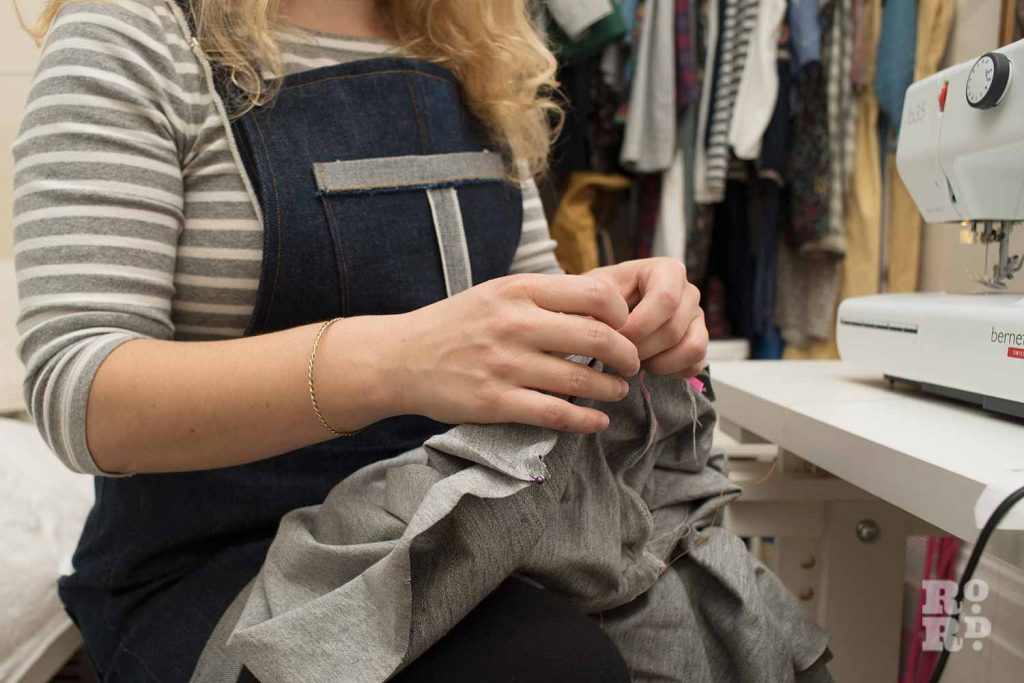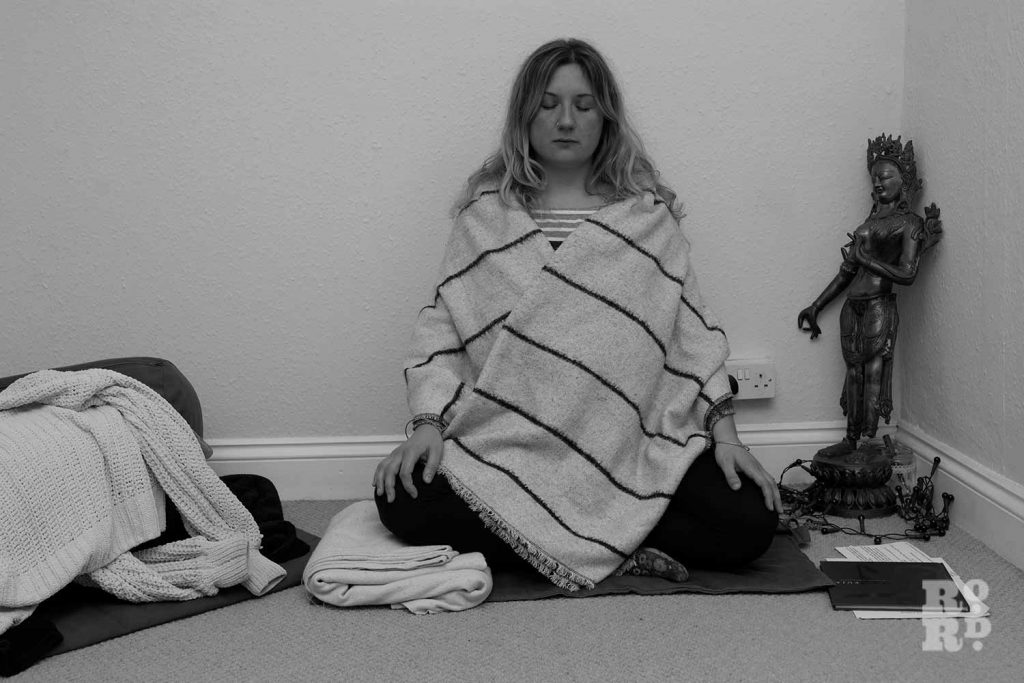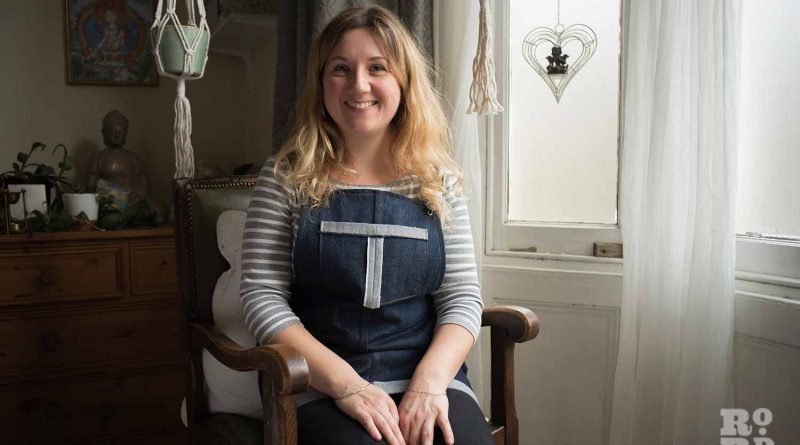Ethical designer Lottie Lee-Gough on creating an alternative to fast fashion
Lottie Lee-Gough, 31, hasn’t bought any new clothes in a year. As soon as she could successfully make clothes herself she ditched the high street and now almost half of her wardrobe is entirely home-sewn.
‘I would like it to be 100 per cent homemade.’ she says.
When we meet she is wearing navy-blue-and-white-striped denim dungarees – homemade of course – and a cream jumper. But she hasn’t always been so adept with a needle and thread.
Lottie recalls trying to make clothes in her early twenties and feeling quite overwhelmed.
‘I made this amazing shirt with big billowy sleeves but it was just unwearable – the collar was awful!’
So she started attending sewing lessons. ‘It was at that point that I was suddenly able to make things that I could wear.’
After that, everything clicked into place for Lottie. She started her own sewing business called The Wild Orchard Sewing Company. Recently she acquired a stall at Lady Lane Market: an all-female setup that has just launched in Petticoat Lane Market.
Lottie is a pioneer. She is part of a small but growing movement of entrepreneurs practising a more ethical form of capitalism: one where eschewing consumerism is at the heart of their business. Her company is providing customers an alternative to “fast fashion”: an industry responsible for 1.2 billion tonnes of greenhouse emissions a year.
Lottie still loves fashion, she is just finding a new, better way to create and enjoy it. One which is accessible for all who are looking for more sustainable ways to live.
As part of her eco-friendly business ethos, Lottie only works with natural fabric. Part of the reason the fashion industry has a large carbon footprint is due to the use of polyester, which is derived from oil.
Her desire for natural fabrics is two-fold.
‘There’s the environmental impact of plastic but also the impact of what it means to wear it, it’s not breathable and it’s not something that feels good against the skin.’
Finding ethically and sustainably sourced textiles is difficult, even as a supplier. Lottie says ‘there is nothing that is a perfectly clean fabric’. The textile industry is one of the biggest polluters in the world.
Lottie is optimistic that home sewing – how she makes her clothing – can make a difference. ‘The premise I work on is that the textile industry is so polluting because of how the fast fashion industry interacts with it. If everyone was home sewing, the textile industry wouldn’t be having the impact that it does.’
She adds: ‘To even support people to make their own clothes at home instantly starts to undo some of the damage that fast fashion is having on the planet.’
Lottie is also a Buddhist. She found her spiritual path after attending a meditation class at the Bethnal Green Buddhist Centre, and now lives in a house share that is part of a Buddhist community.
Her Buddhist values became the foundation for her business ethos.
‘It is really caring for the planet and being mindful and conscientious about how we interact with everything.” She adds: “When I started the business it was absolutely going to be the foundation of how I was going to work.’
At the end of a decade filled, in part, with steadily rising alarm about the environment, designers like Lottie are giving consumers alternative choices to products that come with a much heftier carbon footprint.




